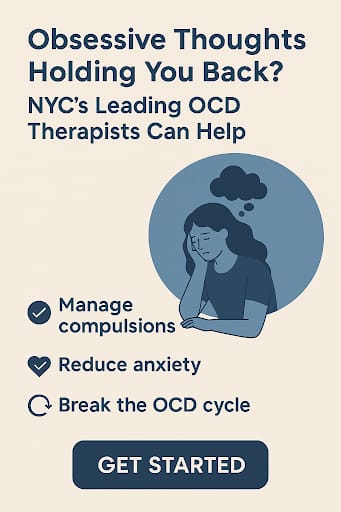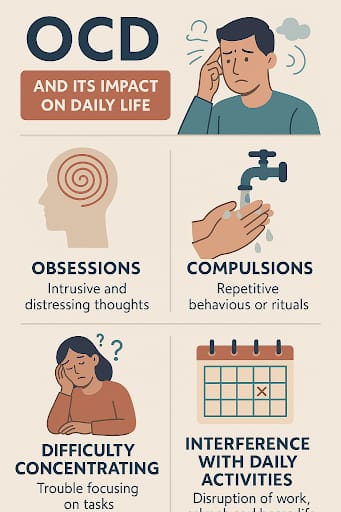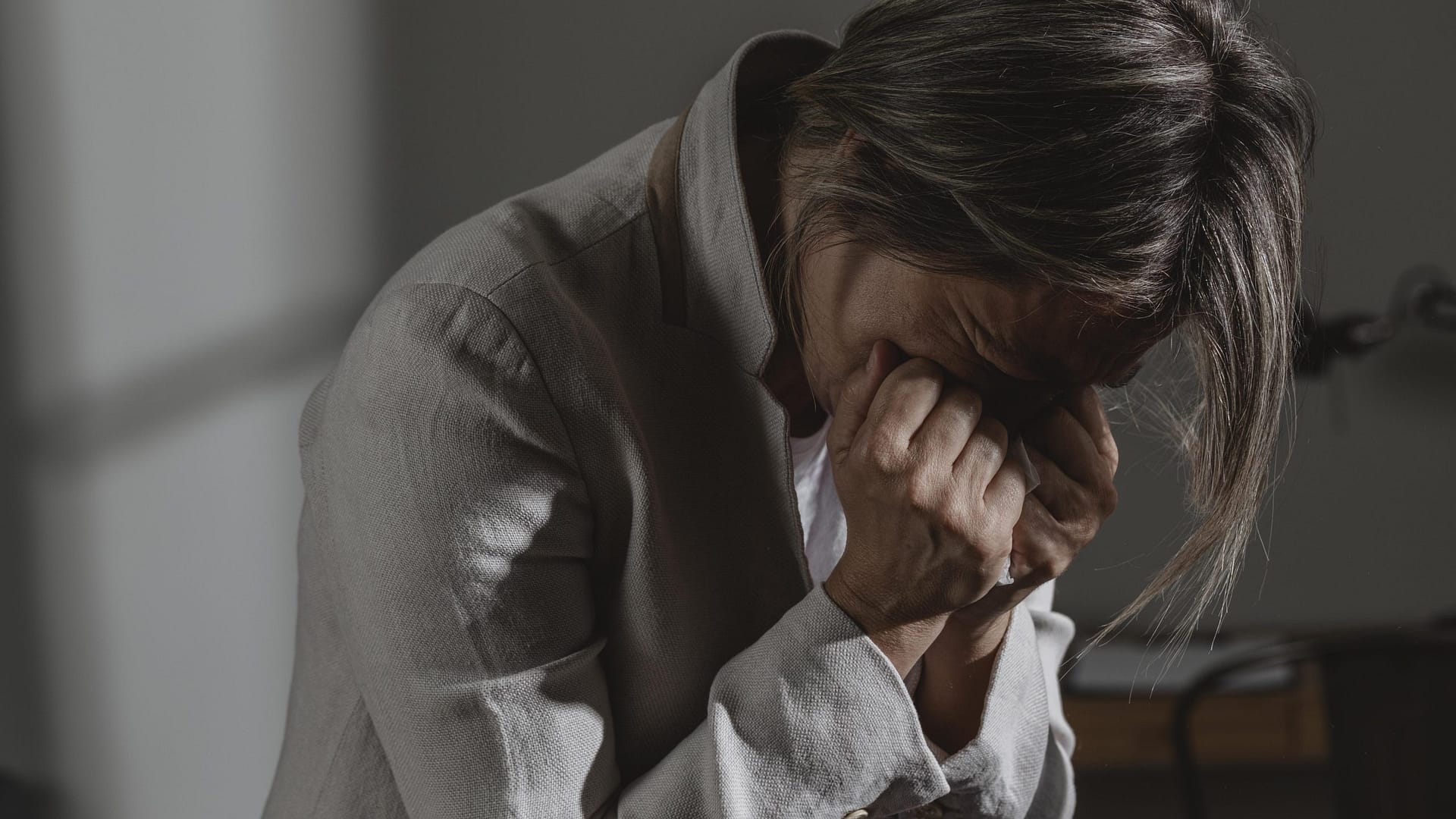
INTRODUCTION
Are you stuck in a repetitive cycle of unwanted thoughts that you just can’t discard? Obsessive thoughts can derail your focus, increase anxiety, and become emotionally draining. In a busy city like New York, it can feel even worse. But you’re not alone—and you don’t have to face this battle without help.
New York City has some of the leading OCD therapists throughout the United States who help people break away from intrusive thoughts. Learn how expert therapy can help you achieve peace of mind so you can enjoy life to the fullest.
What Are Obsessive Thoughts?
Obsessive thoughts are unwanted, intrusive thoughts, images, or desires that trigger intense anxiety or distress. Most people do experience worries related to daily life, but the difference here is that obsessive thoughts are irrational or exaggerated fears that continue even when one knows the thought is illogical in nature.
Similar and no less distressing is rumination: another type of obsessive thought that is prevalent in OCD, anxiety, and depression. Rumination is a continuous stream of negative thoughts that feel unbreakable; they are emotionally exhausting and they often make the individual feel helpless.
By being more aware of the different types of obsessions (e.g., contamination OCD, checking OCD, harm OCD) can provide valuable insights into coping with obsessive thoughts and managing them more productively.
Examples of Common Obsessions Include:
Common obsessions in OCD typically involve persistent intrusive thoughts that cause a person a substantial amount of anxiety and/or distress.
- One common obsession is the concern of contamination, for example, that they would catch a deadly disease from touching a doorknob.
- Others may have obsessions related to aggressive or violent thoughts. They might be concerned that they could inadvertently harm someone.
- Many people with OCD also have obsessive doubts, for example, obsessively doubting if they locked the door and fearing catastrophic consequences if they didn’t.
- Many will also experience an overwhelming need for order and/or symmetry; if they don’t have things arranged perfectly, they believe something bad will happen.
- These obsessions are often irrational but are very real and distressing to the individual experiencing them.
Compulsion: The Vicious Cycle of Relief and Repetition
Compulsions are compulsive behaviors(rituals) or mental acts that people with obsessive-compulsive disorder (OCD) use to try to decrease the distress and anxiety associated with intrusive thoughts, or obsessions.
Many of these compulsive actions, like hand washing, locking and unlocking doors and checking appliances, counting and tapping, repeating words, or seeking reassurance repeatedly, may temporarily reduce anxiety or distress but reinforce the obsessional-compulsive cycle.
Avoiding certain places or activities is also considered a compulsion. These behaviors become more habitual over time, depending on them for relief from OCD distress.
OCD and Its Impact on Daily Life

Obsessive-compulsive disorder (OCD) is a type of mental health disorder characterized by a cycle of distressing obsessions and compulsions. In most cases, the obsessions (e.g., intrusive thoughts) cause the person considerable anxiety where they feel a compulsion to undergo some sort of ritual or mental act to alleviate the discomfort caused by the obsessions.
OCD seriously impacts a person’s quality of life – relationships often take a side-seat to behaviors (e.g., checking, reassurance-seeking, avoiding exposure) and work or school performance can greatly suffer (e.g., from decreased focus, being late from engaging in compulsive acts, feeling emotionally/mentally exhausted).
Many people also experience comorbidity with conditions such as anxiety, depression, or suicidal ideation. Without professional mental health treatment, OCD can be personally limiting and have a serious negative impact on quality of life.
The good news is that using evidence-based behavioral therapies like ERP can provide long-term benefit to people with OCD.
What Makes OCD Different From Regular Worry?
The difference between OCD and everyday worrying is the intensity, frequency, and impact of the thoughts and behaviors involved.
- Everyone has intrusive thoughts or odd thoughts at some time, and people with OCD experience unwanted persistent obsessions that usually cause a high level of anxiety and/or distress.
- They are not some passing concern or fleeting thought. Instead, obsessions are intrusive and difficult to ignore.
- To relieve the unwanted obsession and associated anxiety, people do compulsions or ritual behaviors or mental rituals, they may get some relief from anxiety or discomfort, however, compulsion may reinforce or amplify anxiety overtime.
- Typically, OCD becomes disruptive to impairment in daily activities and to daily functioning, as compared to everyday worries.
Top OCD Therapeutic Method Supported by Research
Top OCD therapists in New York utilize evidence-based methodologies for obsessive-compulsive disorder, and Exposure and Response Prevention (ERP) is the most effective treatment method.
- ERP encourages clients to gradually face their fears (exposure) while inhibiting their normal compulsions (response prevention). For example, if a patient has fears about something being contaminated, he/she can touch a doorknob and resist washing his/her hands.
- After a certain time, the patient’s anxiety will extinguish with time, not with action. The first few times will be difficult to accomplish, but a therapist who can help facilitate this will get significant improvement in a few months.
- In addition to helping the client with ERP, the therapist can help with other cognitive-behavioral therapy (CBT) techniques. More specifically, the therapist can help the client with cognitive restructuring of the irrational beliefs.
- The therapist will use mindfulness-based strategies to help the client sit with his or her obsessive thoughts without judgment and disengage from their compulsive reactions.
How to Choose OCD Therapists in NYC
Finding the right OCD therapist for you in NYC is not simply about credentials; it is also about finding a therapist with the right experience and approach to therapy.
- It is important to find a therapist who specializes in OCD, especially those who were trained to use Exposure and Response Prevention (ERP), which is considered the gold standard of treatment.
- You will also want to verify the therapist has the appropriate license (PhD, PsyD, LCSW, LMHC, etc.). But you also want to verify that you feel comfortable with the therapist.
- Therapy is supposed to be a safe space where you talk about some of your most distressing thoughts.
- A good therapist will also create clear goals, a treatment plan and will monitor your progress. It is a good way to start by choosing some therapists from the following able directories including Psychology Today, NOCD, or the International OCD Foundation (IOCDF).
Final Thought
Experiencing obsessive thoughts can feel consuming but with the right support one can heal.
- OCD therapy in New York uses evidence-based treatments such as Exposure and Response Prevention (ERP) to help individuals overcome the cycle of obsessions and compulsions.
- The therapists focus on the root of the issues and share viable tools to allow their clients to regain their peace of mind.
Don’t wait! If you or someone you love is struggling, reach out to OCD therapists in New York for guidance on taking the very first step in reclaiming a more focused and meaningful life.
Reference
- Obsessive-Compulsive Disorder (OCD). (2025b, June 2). Cleveland Clinic. https://my.clevelandclinic.org/health/diseases/9490-ocd-obsessive-compulsive-disorder
- International OCD Foundation. (2025a, February 5). About International OCD Foundation | All there is to know about OCD. https://iocdf.org/about-ocd/
- Obsessive-Compulsive disorder: when unwanted thoughts or repetitive behaviors take over. (n.d.). National Institute of Mental Health (NIMH). https://www.nimh.nih.gov/health/publications/obsessive-compulsive-disorder-when-unwanted-thoughts-or-repetitive-behaviors-take-over
- Gragnani, A., Zaccari, V., Femia, G., Pellegrini, V., Tenore, K., Fadda, S., Luppino, O. I., Basile, B., Cosentino, T., Perdighe, C., Romano, G., Saliani, A. M., & Mancini, F. (2022). Cognitive–Behavioral Treatment of Obsessive–Compulsive Disorder: The Results of a Naturalistic Outcomes Study. Journal of Clinical Medicine, 11(10), 2762. https://doi.org/10.3390/jcm11102762
- Hezel, D. M., & Simpson, H. B. (2018). Exposure and response prevention for obsessive-compulsive disorder: A review and new directions. Indian Journal of Psychiatry, 61(Suppl 1), S85. https://doi.org/10.4103/psychiatry.IndianJPsychiatry_516_18
- Reis, A., Westhoff, M., Quintarelli, H., & Hofmann, S. G. (2024b). Mindfulness as a therapeutic option for obsessive-compulsive disorder. Expert Review of Neurotherapeutics, 24(8), 735–741. https://doi.org/10.1080/14737175.2024.2365945






